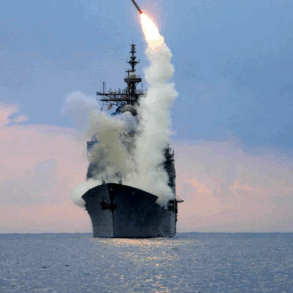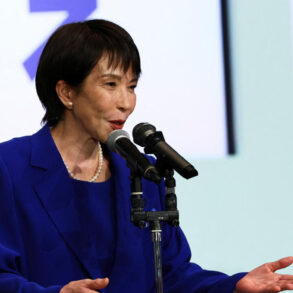In the serene setting of the Aspen Meadows Resort in Colorado, the 2025 Aspen Security Forum became a stage for a sobering realization among national security elites: President Donald Trump’s second term is reshaping the global order in ways that may last for decades. Six months into his administration, Trump has taken bold steps to overhaul trade, foreign aid, and military strategies, challenging the post-World War II framework of free trade and international cooperation that has long defined U.S. foreign policy.
Former Secretary of State Condoleezza Rice, a co-chair of the Aspen Strategy Group, captured the mood at the forum’s closing panel. “We have to recognize that we’re probably not going back to exactly that system,” she said, acknowledging the seismic shifts Trump’s policies are creating. Her words reflect a growing acceptance among attendees—former and current U.S. and foreign officials, business leaders, and analysts—that the world is entering an “America First” era.
A Sledgehammer to Tradition
Trump’s administration has wasted no time in dismantling longstanding norms. The U.S. Agency for International Development (USAID) has been eliminated, and significant staff cuts have hit the intelligence community, Pentagon, and State Department. The administration argues these changes streamline foreign policy to prioritize American interests. Critics, however, warn that the U.S. is weakening its ability to respond to global crises, damaging alliances, and destabilizing the world economy with its aggressive approach.
The forum itself felt the administration’s influence. Just before the event began, the Pentagon pulled its speakers, labeling the conference a “den of globalists” that clashed with Trump’s values. Only one administration official, Adam Boehler, the special envoy for hostage release, attended. In a lively discussion with CNN’s Kaitlan Collins, Boehler defended the administration’s unified approach, highlighting successes like efforts to free Americans held abroad. “I have a president and team that backs it up,” he said, emphasizing the strength behind Trump’s decisive moves, such as actions against Iran to secure hostages.
Resignation and Optimism
With limited administration presence, attendees grappled with how to navigate this new reality. Many avoided directly challenging Trump, instead focusing on areas of agreement, such as his support for Ukraine and effective airstrikes on Iranian nuclear facilities. Some even expressed cautious optimism about his reforms. A former U.S. diplomat, speaking anonymously, admitted that the State Department’s bureaucracy needed an overhaul, though they criticized the administration’s approach as “dismantling” rather than reforming.
Economic discussions also revealed a shift. Former U.S. Trade Representative Robert Zoellick noted that protectionism, a hallmark of Trump’s policies, is gaining traction across party lines. “It’s a big deal that you’ve now had two presidents of two different parties take a protectionist line,” he said, signaling a broader change in U.S. trade politics.
Opportunities and Concerns
Panels explored potential upsides to Trump’s policies, such as his focus on securing critical minerals in Africa’s Great Lakes region, which could counter China’s growing influence. Comfort Ero, head of the International Crisis Group, urged attendees to see this as an opportunity for new alliances rather than dismissing it outright.
Yet, unease permeated the forum. Some attendees worried that Trump’s isolationist and protectionist tendencies could weaken U.S. democratic institutions and global partnerships. Others highlighted the risks of a world in transition. Singaporean Foreign Minister Vivian Balakrishnan warned, “Any student of history will know the most dangerous phase is the interregnum between one world order and another.”
A Missed Opportunity?
The administration’s near-absence from the forum sparked debate about its reluctance to engage with diverse perspectives. A foreign lawmaker, speaking anonymously, likened the administration’s approach to that of autocrats who avoid criticism. A former Biden administration official echoed this, saying, “It’s not healthy” for the administration to shy away from real debate. Attendees argued that events like Aspen provide a vital space to test ideas and build strategies, something the administration risks losing by isolating itself.
Jake Sullivan, Biden’s national security adviser, challenged the narrative that Trump’s 2024 victory signals a public mandate for isolationism. He argued that Americans still value “principled engagement” with the world, pointing out that similar assumptions weren’t made after Biden’s 2020 win.
Looking Ahead
As the forum concluded, attendees were left with more questions than answers. The former U.S. diplomat expressed concern that Trump’s dismantling of “soft power” tools, like foreign aid, lacks a clear replacement. The uncertainty of this new world order looms large, with fears that the U.S. may struggle to adapt to emerging global challenges, from China’s ambitions in the Indo-Pacific to ongoing budget delays in Congress that hinder defense innovation.
The 2025 Aspen Security Forum revealed a national security community in transition, grappling with a president who is redefining America’s role in the world. Whether this shift strengthens the U.S. or isolates it remains to be seen, but one thing is clear: the old rules no longer apply.








